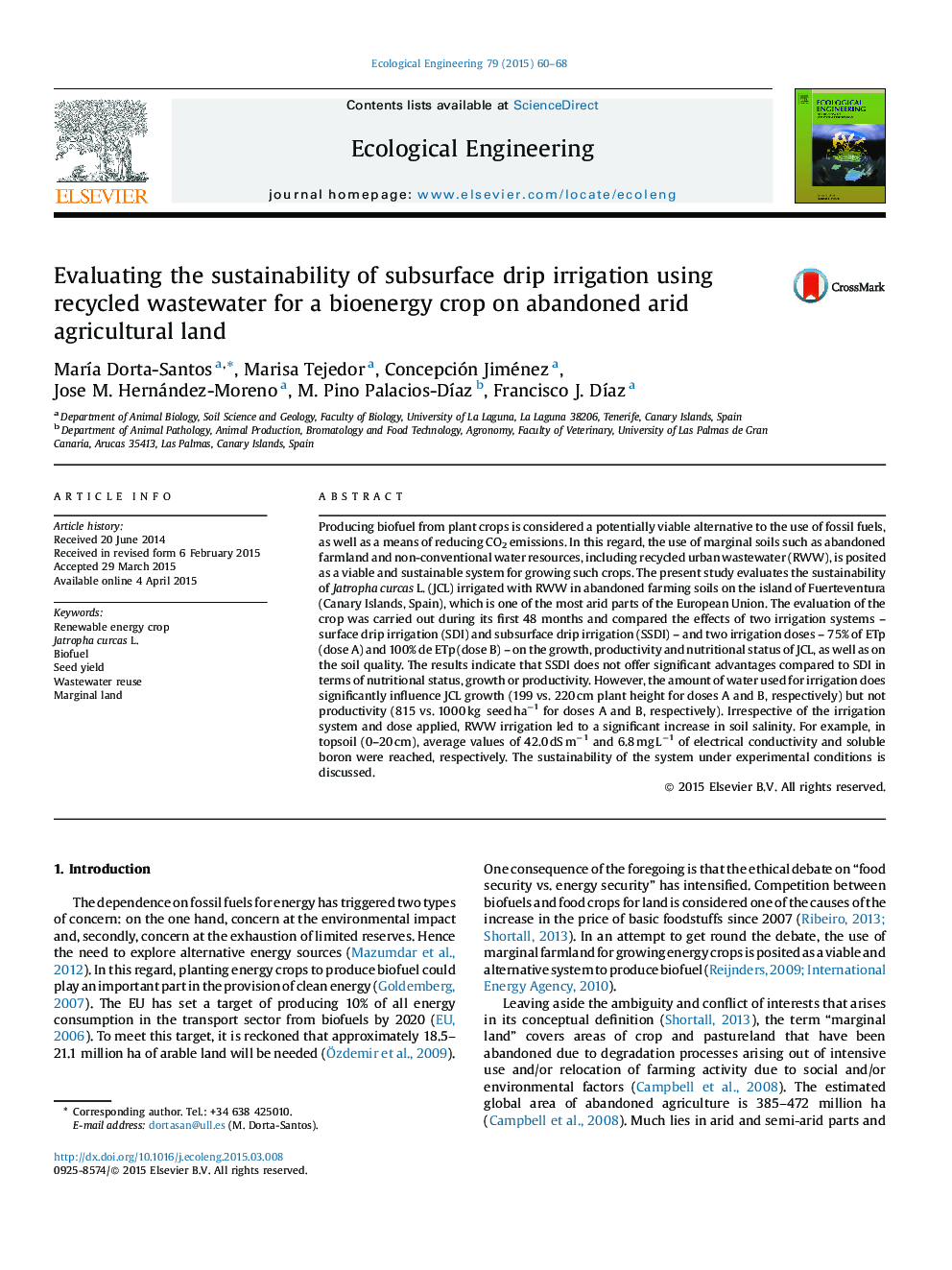| Article ID | Journal | Published Year | Pages | File Type |
|---|---|---|---|---|
| 4389119 | Ecological Engineering | 2015 | 9 Pages |
Producing biofuel from plant crops is considered a potentially viable alternative to the use of fossil fuels, as well as a means of reducing CO2 emissions. In this regard, the use of marginal soils such as abandoned farmland and non-conventional water resources, including recycled urban wastewater (RWW), is posited as a viable and sustainable system for growing such crops. The present study evaluates the sustainability of Jatropha curcas L. (JCL) irrigated with RWW in abandoned farming soils on the island of Fuerteventura (Canary Islands, Spain), which is one of the most arid parts of the European Union. The evaluation of the crop was carried out during its first 48 months and compared the effects of two irrigation systems – surface drip irrigation (SDI) and subsurface drip irrigation (SSDI) – and two irrigation doses – 75% of ETp (dose A) and 100% de ETp (dose B) – on the growth, productivity and nutritional status of JCL, as well as on the soil quality. The results indicate that SSDI does not offer significant advantages compared to SDI in terms of nutritional status, growth or productivity. However, the amount of water used for irrigation does significantly influence JCL growth (199 vs. 220 cm plant height for doses A and B, respectively) but not productivity (815 vs. 1000 kg seed ha−1 for doses A and B, respectively). Irrespective of the irrigation system and dose applied, RWW irrigation led to a significant increase in soil salinity. For example, in topsoil (0–20 cm), average values of 42.0 dS m−1 and 6.8 mg L−1 of electrical conductivity and soluble boron were reached, respectively. The sustainability of the system under experimental conditions is discussed.
